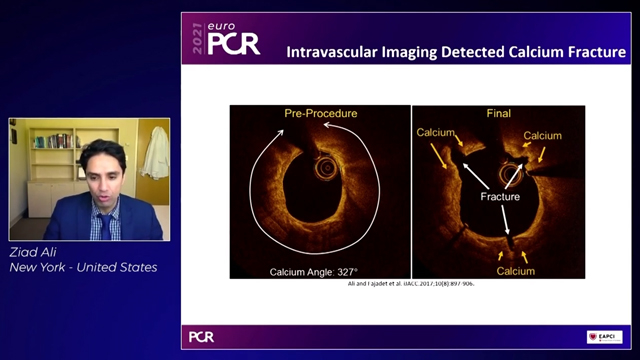
Ziad Ali
Latest contributions
Navigating complexity in high-risk patients with multivessel disease undergoing PCI
23 May 2025 – From EuroPCR 2025
This educational session focuses on navigating the complexities of PCI in high-risk patients with multivessel disease. Learn the roles of imaging and physiology, low-contrast PCI techniques, and optimal strategies for patients with concomitant aortic stenosis, illustrated through detailed case discussions.
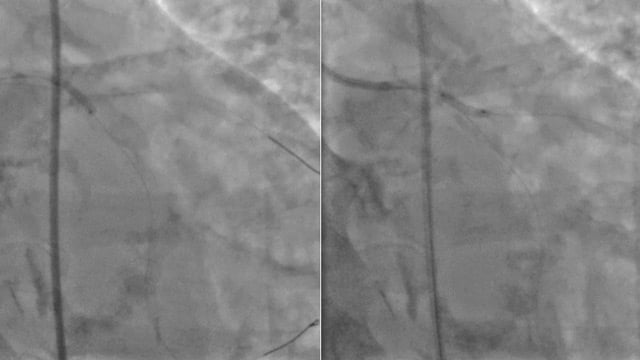
Complex PCI for stent failure: LIVE Educational Case from Hospital Clínico San Carlos - Madrid, Spain
21 May 2025 – From EuroPCR 2025
This live educational case from Hospital Clínico San Carlos, Madrid, offers an in-depth look at complex PCI for stent failure. Learn how intracoronary imaging identifies failure mechanisms, guides treatment of recurrent restenosis, and explores drug-coated balloon options to optimize patient outcomes.
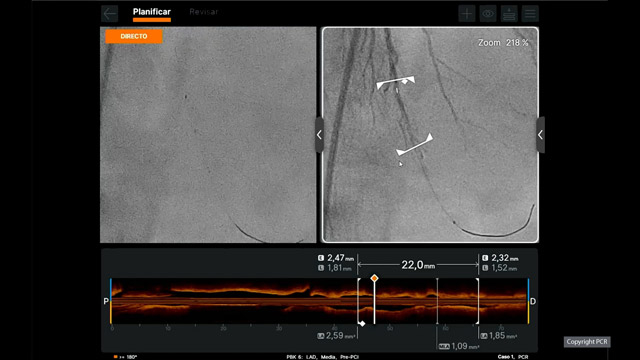
First results of randomised trials on advanced plaque modification techniques and intracoronary imaging
16 May 2024 – From EuroPCR 2024
This session presents the first results of randomized trials investigating the use of advanced plaque modification techniques, such as rotational atherectomy, lithotripsy, and laser atherectomy, as well as the role of intracoronary imaging (OCT and IVUS) in guiding percutaneous coronary intervention (PCI). The session aims to...
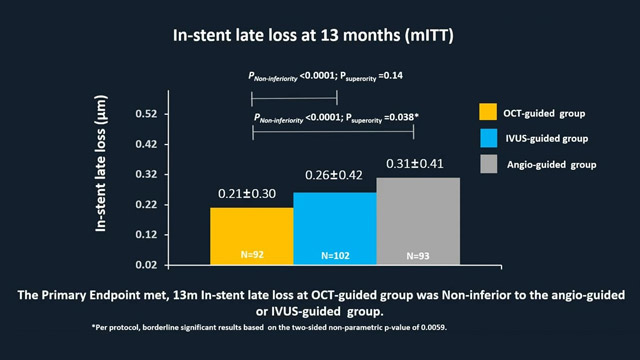
New frontiers in coronary physiology and imaging
15 May 2024 – From EuroPCR 2024
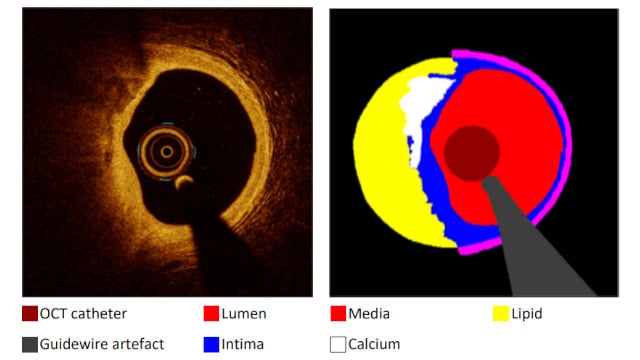
Role of deferred stenting in culprit and non-culprit lesions for STEMI
14 May 2024 – From EuroPCR 2024
This session explores the role of deferred stenting in STEMI patients, covering when and how PCI can be deferred, the latest pharmacological options for deferred stenting, and the use of imaging and physiology to guide revascularization in a primary PCI setting. Through case presentations and discussions,...
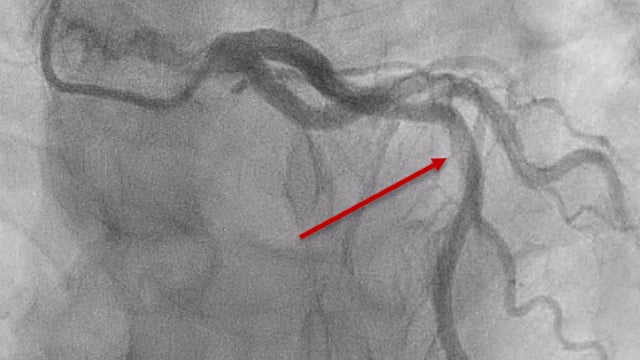
Stent failure management - Contemporary management options - Part 2
18 May 2023 – From EuroPCR 2023
In this session, explore the evolving causes of restenosis in contemporary practice and understand how to tailor in-stent restenosis treatment based on its underlying mechanism. Discover why imaging is crucial for selecting the appropriate treatment in cases of in-stent restenosis, and learn that drug-coated balloons are...

Intravascular lithotripsy in the real world: the revolution continues
18 May 2023 – From EuroPCR 2023
In this session, review the evolution in the use of IVL over the last few years, with a widening of the indications, observe that OCT can underestimate the number and depth of calcium fractured induced by IVL, or see that the technique is safe and effective...

EuroPCR 2023 Hotlines/Late-Breaking Trials: focus on wire and image-based physiology
18 May 2023 – From EuroPCR 2023
Find out more about a series of studies focusing on wire and image based physiology: Coronary microvascular function and CT coronary angiography trial aiming to assess whether endotype diagnosis informed by coronay function testing vs angiography improved angina; a 5-year follow up of the DEFINE FLAIR;...
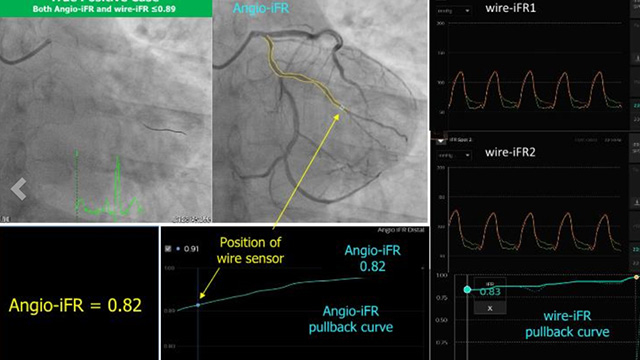
Angiography-based FFR: from clinical evidence to daily practice
17 May 2023 – From EuroPCR 2023
Explore angiography-based FFR/virtual FFR in this session. Uncover clinical evidence, identify ideal patients, and learn step-by-step integration into daily practice.

A patient with NSTEMI and multivessel disease: culprit and non-culprit lesion management
16 May 2023 – From EuroPCR 2023
Follow the discussion around 2 specific cases, a 72-year-old ex-smoker female patient with HTN, hyperlipidemia, previous TIA, COPD and stable lung cancer, and a 44-year-old male patient with T2DM, HTN, dyslipidemia, psoriasis and chest pain, and learn how to treat NSTEMI with MVD.

How can you determine the culprit lesion in NSTEMI?
16 May 2023 – From EuroPCR 2023
Since patients with NSTEMI represent an important population in practice, Ziad Ali and Natalia Pinilla discuss the diagnosis of culprit lesions in such patients. The first tool to rely on is intravascular imaging, even if imaging does not yet allow the interpretation of ambiguous or residual lesions....
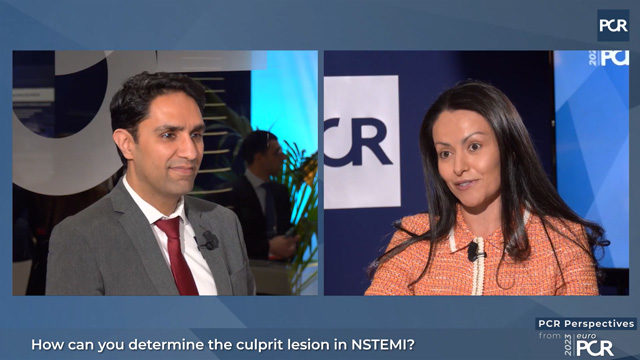
Left main bifurcation stenting
19 May 2022 – From EuroPCR 2022
Let's study, LIVE from Massy, France, the case of a 76-year-old man, hypertensive, dyslipidemic, who presented apical necrosis without ischemia in 2017, asymptomatic, referred for myocardial scintigraphy, and find out more about performing LM PCI, using imaging to guide the procedure.
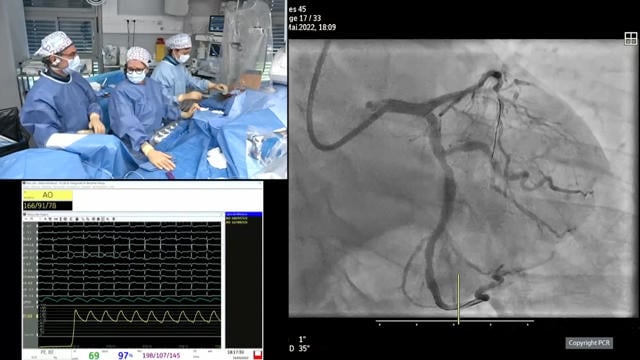
The challenge of the diabetic patient with diffuse coronary artery disease: how physiology can simplify things
18 May 2022 – From EuroPCR 2022
Based on the didactic analysis of several practical cases, and also on the latest guidelines and study outcomes on the subject, learn in this EuroPCR 2022 session new management strategies to optimise PCI in diffuse coronary artery disease, new developments of the Optowire to support decision-making in patients...
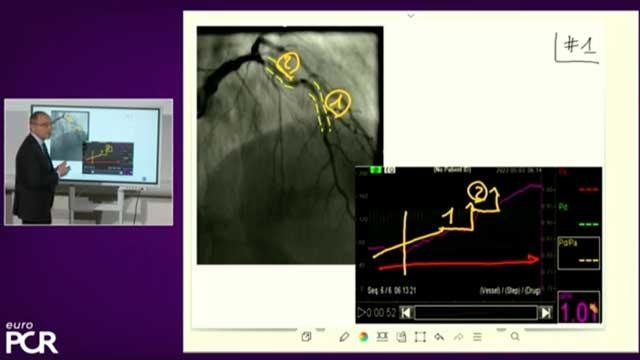
IVUS and OCT: when, how, why?
18 May 2022 – From EuroPCR 2022

Standardised criteria for stent optimisation in imaging-guided PCI
18 May 2022 – From EuroPCR 2022
Achieving standardised criteria for stent optimisation in imaging-guided PCI can be challenging and requires correct analysis of the pre-PCI lesion anatomy, correct use of dedicated tools, and rigorous methodology, as this should not be at the expense of patient safety: this is the key message of...
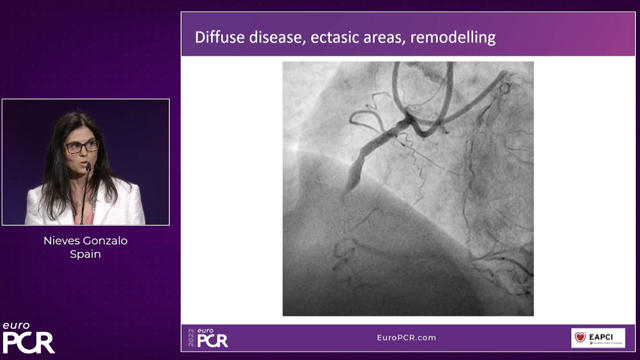
What's new in intravascular imaging - a closer look on the real-life use of OCT/IVUS
17 May 2022 – From EuroPCR 2022

Ultra-low contrast 2021: new skills and technologies for next frontier in PCI
18 May 2021 – From EuroPCR 2021
Watch this video presented by Ziad Ali, Nieves Gonzalo, Alexander Becker, Javier Escaned and Billal Patel in order to understand what's the rationale for ULCPCI, to get an overview of techniques that help you dramatically reduce the contrast dose while performing PCI, and to gain some visibility...
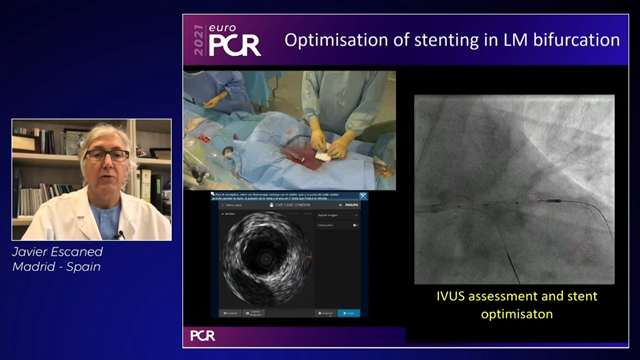
Is angio-based FFR ready to replace invasive FFR?
18 May 2021 – From EuroPCR 2021
Watch this session presented by Joost Daemen and Ziad Ali in order to know more about physiological assessment in the cathlab and angio-based vFFR, the results of the multicentre vFFR clinical trial, and the future of angio-based FFR in the cathlab.
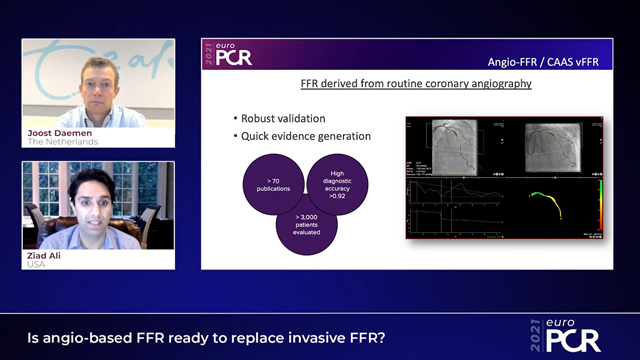
The rising wave: new intravascular lithotripsy publications
18 May 2021 – From EuroPCR 2021
Watch this session presented by Benjamin Honton, James Spratt, Ziad Ali, Carlo Di Mario and Jonathan Hill in order to learn of the latest in Intravascular Lithotripsy (IVL) publications, to understand its mechanism of action, and to identify its clinical utility.
